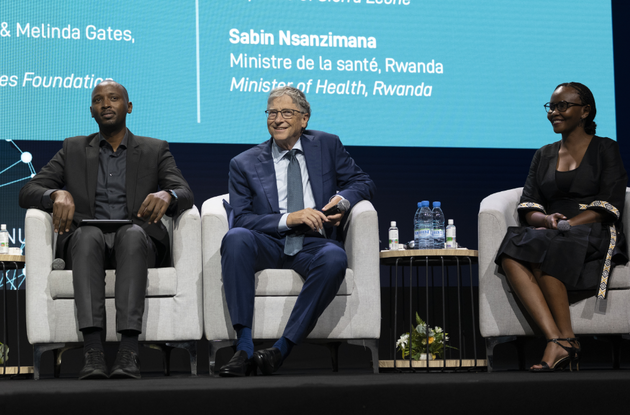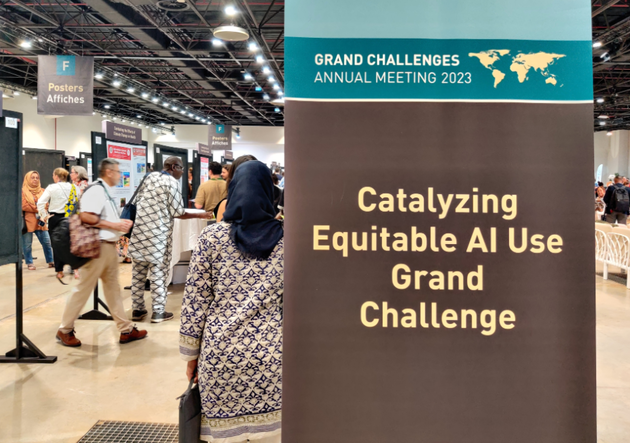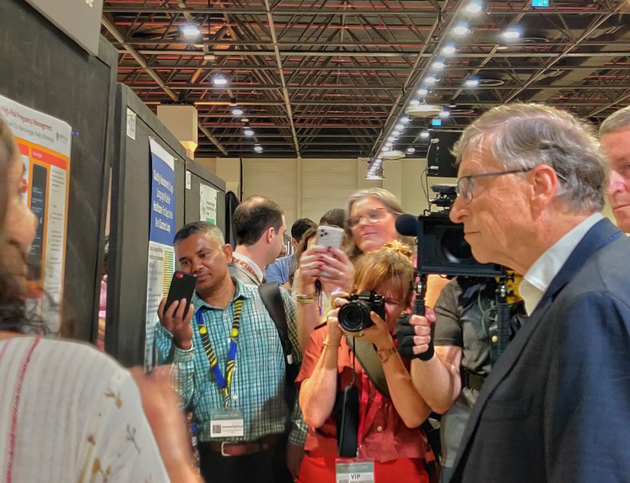
Photo/Li Menglin (NBD)
As a celebration of innovative solutions to global development and health challenges, the 2023 "Grand Challenges" Annual Meeting is full of vitality and creativity.
Here, you can see colorful poster walls displaying 50 innovative projects from African countries. They use large language models to solve problems in the fields of healthcare, agriculture, education, and finance. Bill Gates, the founder of Microsoft and the co-chair of the Gates Foundation, is visiting these projects with great interest
On October 11, 2023, the 2023 "Grand Challenges" Annual Meeting, jointly supported by the Bill & Melinda Gates Foundation (hereinafter referred to as "Gates Foundation"), concluded in Dakar, the capital of Senegal. At this annual meeting, Bill Gates shared his latest thoughts on the future of AI large language models.
He believes that AI is the first technology that's essentially unbounded in terms of how capable it gets. Gates announced that the Gates Foundation will invest 30 million US dollars to support the establishment of a new AI platform in Africa, hoping that AI will no longer have a time lag of ten or even twenty years when it benefits Africa.
At the "Grand Challenges" Annual Meeting to discuss innovative solutions to global development and health challenges, Bill Gates explained his biggest concern about AI. "AI technology is much more powerful than the technology we have now. You might even think it's too good of a thing."
"So you think AI is so good that it will be dangerous?" the host asked. "Yes," Gates replied decisively.

Photo/Li Menglin (NBD)
Although Gates has faded out of Microsoft's specific business for several years, he is still proud of Microsoft's investment in OpenAI and is excited about the potential of AI. Since ChatGPT emerged, Gates has praised the revolutionary potential of AI large models in multiple occasions, but he has also been cautious about the disruptive impact of AI. He said that AI that replaces manufacturing and white-collar jobs will eliminate the necessity of many human jobs, and this impact is more profound than the unemployment problems caused by new technologies in history.
In the short term, Gates believes that the current problem with AI is that the quality of generated content still needs to be improved: Now, 4 out of 5 generated answers may be amazing, but one is not ideal. He believes that fields like medicine have high requirements for accuracy, so AI systems still need to be improved to meet the accuracy requirements. In addition, the issue of false information caused by Deepfake (deep fake technology), as well as the public's sensitivity to AI-generated content, are all issues that need to be addressed in the near future.

Photo/Li Menglin (NBD)
Three months before the meeting, the "Grand Challenges" funded nearly 50 large language model application projects, covering multiple fields such as healthcare, agriculture, education, and finance, almost all from low- and middle-income countries. At the venue, Gates himself visited the poster wall of the funded projects with great interest and listened to the researchers' detailed introduction of their projects.
Among the funded projects, many have already started trial operation, but there are also many projects that are still in the concept design and tool development stages. Gates admitted that these projects still need more time to prove their value, and they also need to find challenges that need to be solved in development and application.
In order to accelerate the faster development and application of AI in low- and middle-income countries, Gates announced during the annual meeting that the Gates Foundation will invest 30 million US dollars to establish a new AI platform in Africa, providing necessary technical and operational support to African scientists and innovators, so that promising ideas can be better converted into solutions.


 川公网安备 51019002001991号
川公网安备 51019002001991号





